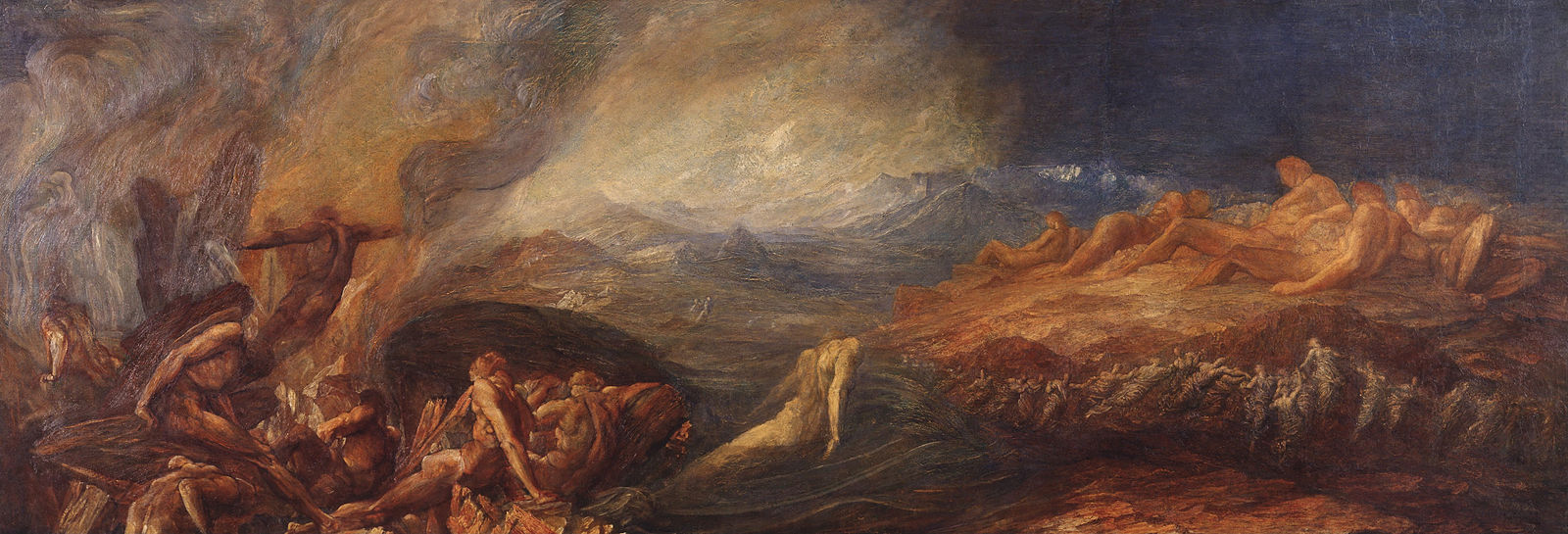Image: George Frederick Watts, Chaos (c. 1875).
With global anxiety increasing as we face threats in so many areas, how should we—as people of faith—respond?
It is clear that humanity is facing a number of existential crises: sea-levels rising, more frequent “weather events,” insect numbers decimated, oxygen levels in the sea declining, species extinction, plastic pollution, toxic air . . . and the list could go on. When we add to this political posturing, social inequality, the rise of nationalism, and nuclear arms proliferation we end up with the perfect storm. Many are anxious. Is this the end of the world? So prevalent is anxiety in the current climate that one paper recently presented us with the “A-Z of climate anxiety: how to avoid meltdown,” subtitled: “With the climate emergency putting our mental health at risk, Emma Beddington presents an everyday guide to eco wellbeing.” This may, perhaps, result in some personal comfort but offers little hope for the planet. Continue reading “Rapture theology and the end times”

